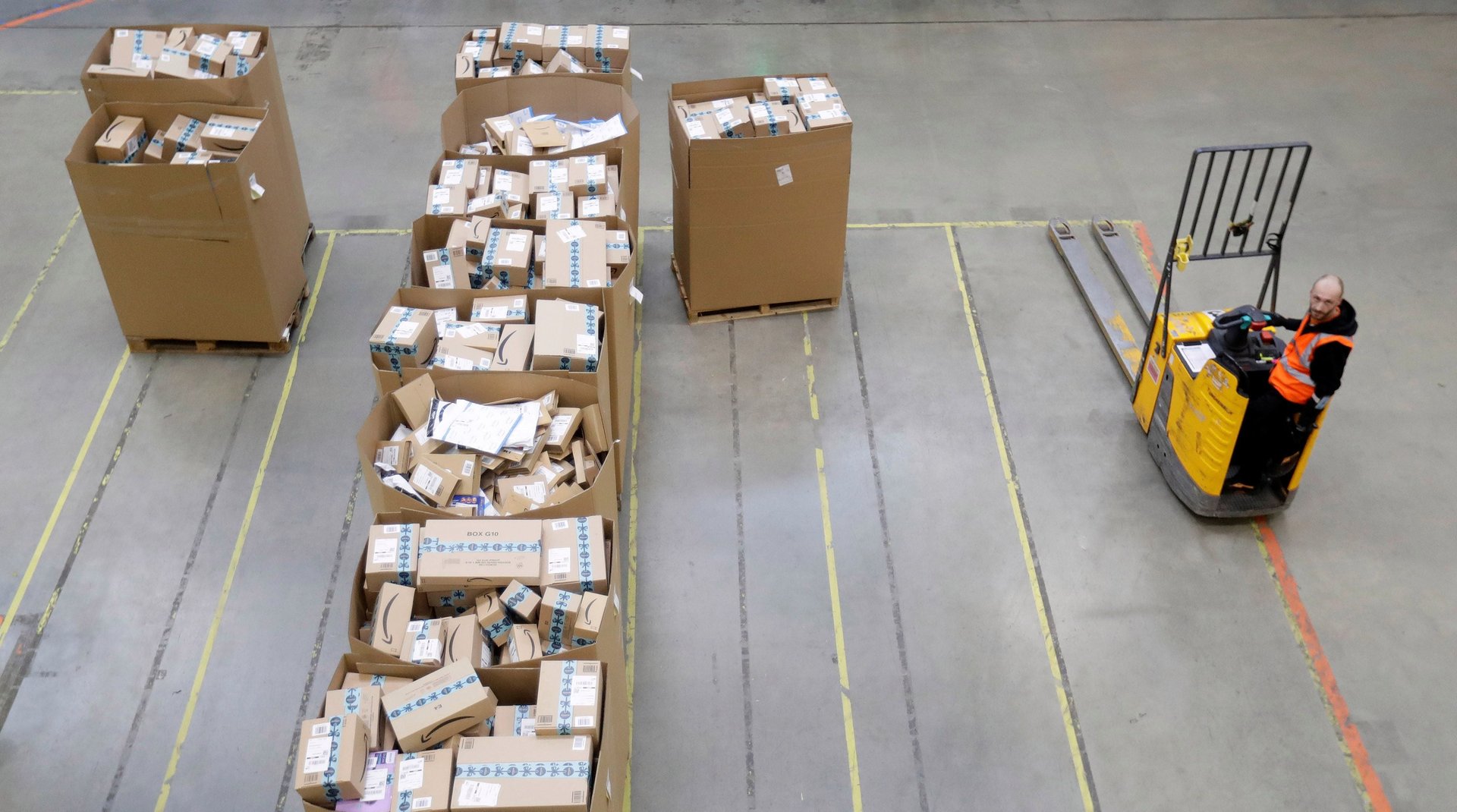Amazon abruptly stopped buying goods from third-party sellers
Amazon is reportedly going cold turkey on thousands of vendors.


Amazon is reportedly going cold turkey on thousands of vendors.
The e-commerce behemoth has canceled orders with many wholesalers, pushing them instead to sell directly to consumers on its marketplace, Bloomberg reported today (March 7). Having vendors sell directly to customers is a better arrangement for Amazon because it can charge merchants for services like storing and shipping products and take a commission on each transaction, plus it avoids the risk of buying inventory that doesn’t sell.
The shift in strategy comes as several of Amazon’s core businesses have slowed. For the fourth quarter of 2018, Amazon reported 12.5% year-over-year growth in its online stores segment, significantly slower than the 19.7% annual growth rate it posted in the 2017 fourth quarter. Third-party seller services, Amazon’s business of making money from services provided to merchants who sell on its marketplace and commissions on those sales, brought in $13.4 billion in revenue in the quarter that ended Dec. 31, 2018, but also posted its slowest growth of the year.
Forcing more sellers onto the marketplace could help Amazon revive those numbers, especially in the third-party seller services segment. Meanwhile, Amazon is investing heavily in its own private-label brands, and others that are sold exclusively on its site. Many of those brands will ultimately compete against merchandise currently purchased by Amazon from third-party sellers, which might also be a reason why the company is eager to shift those third-party sellers to its marketplace.
The company’s new stance has put some sellers in a tight spot, Bloomberg reported, as they source their products from manufacturers months before actually selling them. Attendees at this week’s ShopTalk retail conference reportedly said Amazon abruptly and without explanation stopped submitting regular orders for products the previous week. That could leave those sellers with no other option than to sell their wares on Amazon’s marketplace for now.
“If you’re heavily reliant on Amazon, which a lot of these vendors are, you’re in a lot of trouble,” Dan Brownsher, CEO of e-commerce consulting business Channel Key told Bloomberg. “If this goes on, it can put people out of business.”